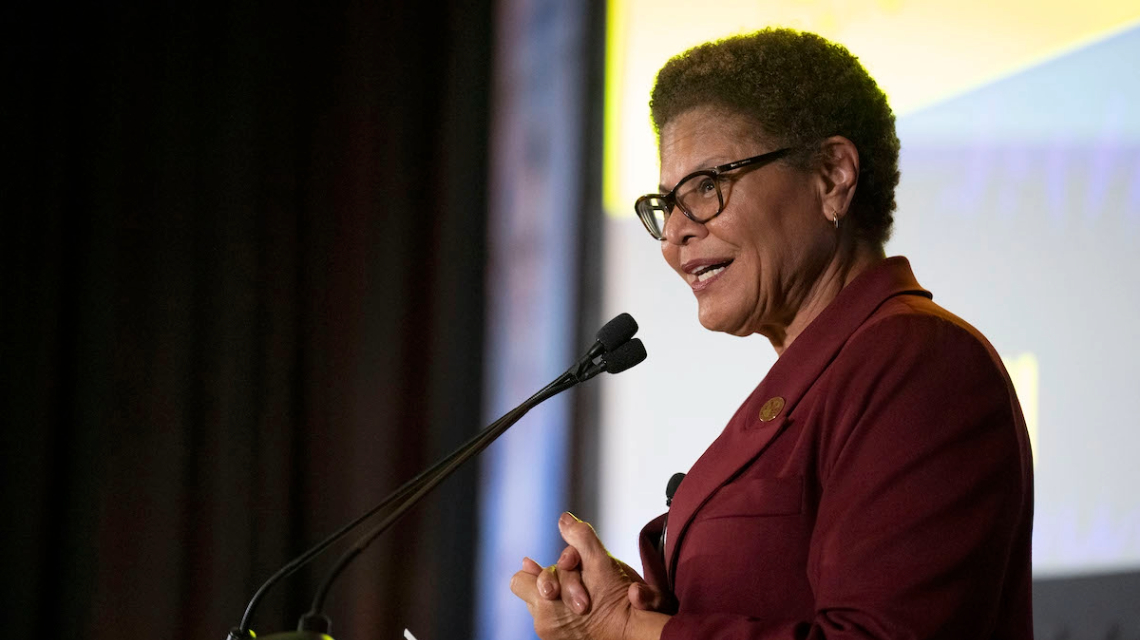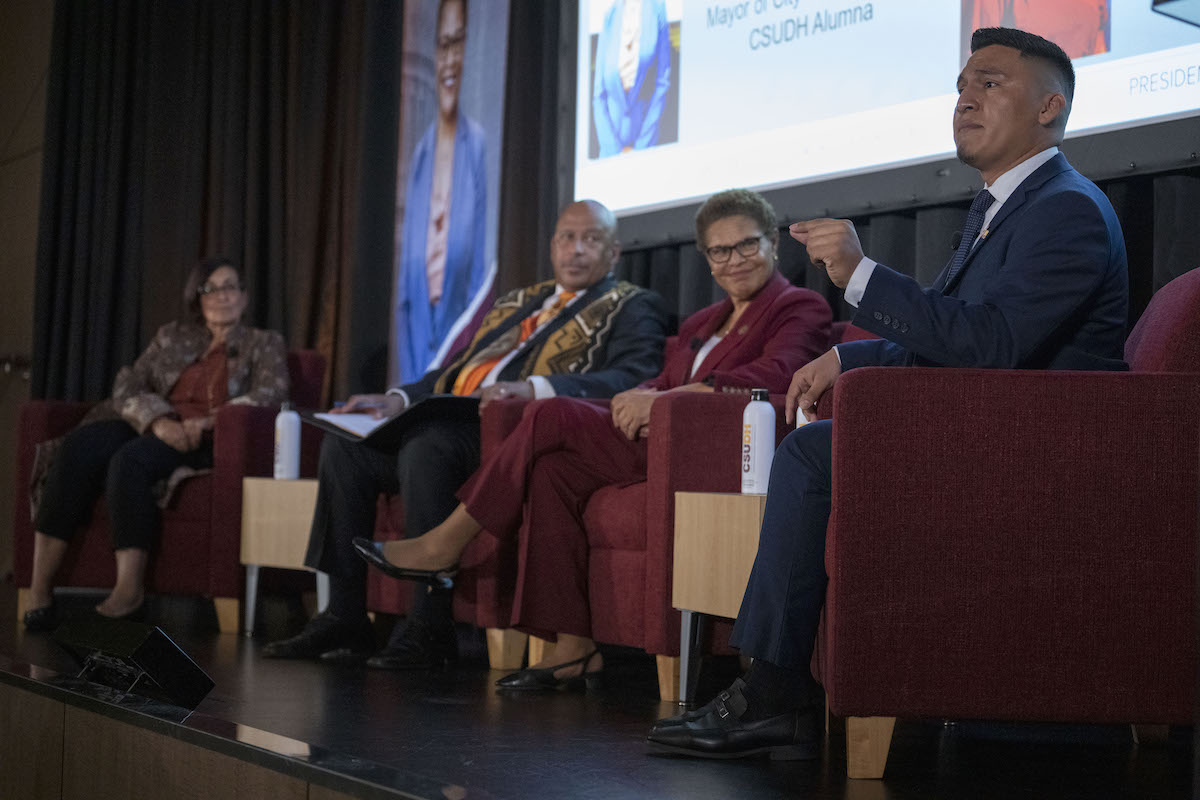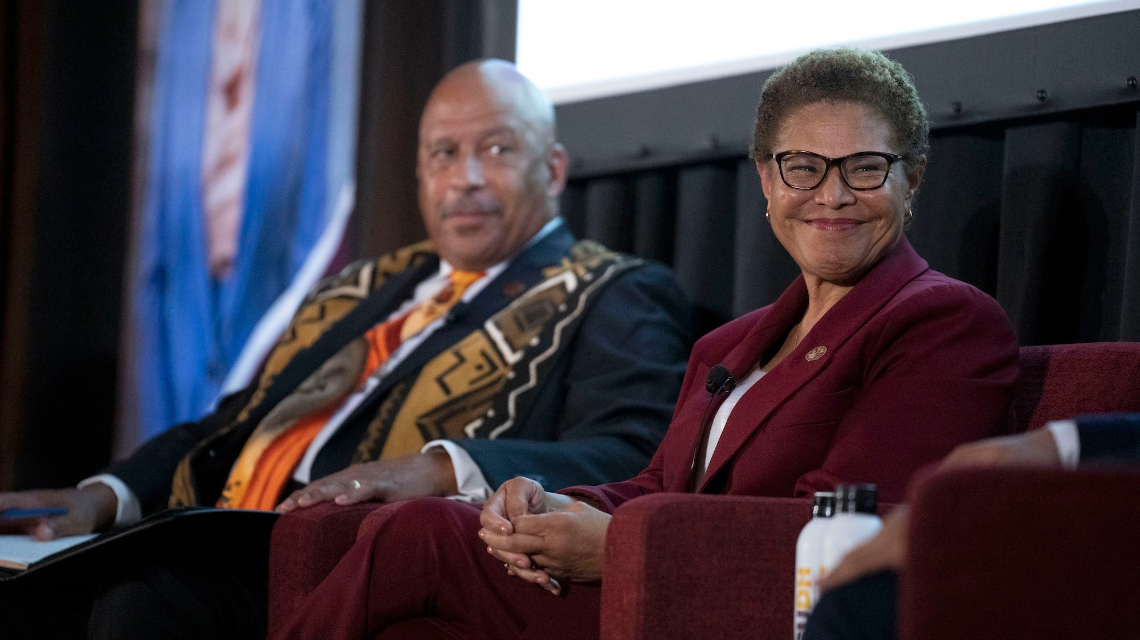
“Do you want to make a point, or do you want to make a difference?” asked CSUDH alumna and Mayor of Los Angeles Karen Bass to a room full of students, faculty, staff, and community members. On Nov. 15, Bass was the featured speaker for the Presidential Distinguished Lecture Series, where she delved into her vision of civic engagement and leadership, guiding principles, and hopes for the future.
CSUDH President Thomas A. Parham established the Presidential Distinguished Lecture Series to welcome prominent public figures to campus and discuss society’s most pressing issues. Bass’s invitation was doubly significant: she is the first alum to take part in the program, and the visit marked her first official CSUDH event since becoming mayor in 2022.
Bass graduated from CSUDH with a B.S. in Health Science in 1990.
“It is great to be home,” Bass announced as she took the stage with Parham. She then went on to describe her first year as mayor and the myriad challenges—most notably, homelessness—that she is endeavoring to overcome. She also spoke about the urgent need for the next generation to pick up the baton for social change and betterment.

“I hope that many of you, especially those of you that are students, think about public service as something that you want to dedicate your life to,” Bass said. “There are so many issues that we have in our city and in our country to deal with, and you bring all of the talent.”
Following the discussion, First Lady Davida Hopkins-Parham and Dean of the College of Health, Human Sciences and Nursing Mi-Sook Kim presented Bass with a special gift—a scaled-down replica of a mural from the Loker Student Union, in which Bass is depicted, with the inscription “Making history by building a movement with a vision set on solutions.”
View all photos from the event on SmugMug.
At the event’s close, it was announced that the essential documents and artifacts from Bass’s time as Speaker of the California State Assembly and Chair of the Congressional Black Caucus will be housed in the University Library’s Gerth Archives and Special Collections. The “Karen Bass Collection” will provide students, faculty, and members of the community with the opportunity to engage in scholarly research and allow access to these historical and transformational documents.
Watch the full Karen Bass Presidential Distinguished Lecture:









